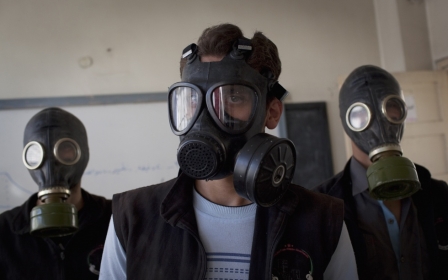US: Syrian chemical facilities must be destroyed

Syria must destroy all its chemical weapons facilities to comply fully with UN resolution, a top US State Department official said on Friday.
Under the UN Security Council resolution, passed last year, Syria had until 27 April to dispose of all its chemical weapons. While 92 percent of its stockpiles are now believed to have been removed, 8 percent remains inaccessible because of the poor security situation.
However, even if 100 percent is delivered, Syria could be pushed to go further, according to Rose Gottemoeller, the undersecretary of state for arms control and international security.
"I've been urging people not to declare victory when the last chemicals leave the country. We cannot do that," Gottemoeller said while also stressing that Syria must also destroy facilities, including hangars and tunnels, associated with its program.
Gottemoeller also stressed said that there are unresolved "omissions" in the Syrian government's declaration of its chemical stockpiles and that the alleged discrepancies are being pursued by the Organization for the Prohibition of Chemical Weapons, which monitors implementation of the Chemical Weapons Convention.
Stay informed with MEE's newsletters
Sign up to get the latest alerts, insights and analysis, starting with Turkey Unpacked
Syria ratified the convention last year as part of the deal to eliminate its chemical weapons after a chemical weapons attack on a Damascus rebel-held suburb killed up to 1,400 people and almost lead to an international military intervention to topple President Bashar al-Assad.
The statements come a day after the UK warned that the Assad regime still had enough chemicals to make nerve agents that could replicate the deadly August 2013 attack "many times over.”
"Syria continues to possess approximately 100 metric tonnes of material" at one site, the delegate told a meeting of the OPCW's Executive Council, according to a copy of the briefing seen by AFP.
"The site contains all the precursors needed to produce nerve agent and sufficient material to replicate, many times over, the incident in the suburbs of Damascus on August 21 last year," the delegate said.
Middle East Eye delivers independent and unrivalled coverage and analysis of the Middle East, North Africa and beyond. To learn more about republishing this content and the associated fees, please fill out this form. More about MEE can be found here.




